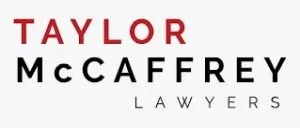- with Senior Company Executives, HR and Inhouse Counsel
- with readers working within the Business & Consumer Services, Insurance and Healthcare industries
With inflation, businesses seem to be resorting to increasingly deceptive sales and marketing practices to maintain their profit margins without pricing themselves out of the market. While the most common of these tactics is shrinkflation, the concern goes far beyond the size of former United States President Joe Biden's Snickers.
Drip Pricing
"Drip Pricing" is becoming all the more prevalent in marketing practices and is now covered under paragraph 74.01(1.1) of the Competition Act (the "Act"). Drip Pricing refers to a deceptive marketing strategy in which goods and services are initially advertised at a set price, but additional mandatory fees are later added making the prices advertised unattainable. Under the Act, this practice is unlawful, unless the additional charges or fees are imposed by the government; such as through a sales tax. Instances of Drip Pricing are most notable in car rentals, satellite radio subscriptions and online sporting and entertainment ticketing industries.
The most prevalent decision on Drip Pricing was ruled on September 23, 2024 by the Competition Tribunal that Cineplex Inc. ("Cineplex") was found to be engaged in Drip Pricing by adding a mandatory $1.50 online booking fee and ordered Cineplex to pay a financial penalty of over $38.9 million dollars and legal costs (that's a lot of popcorn!). The penalty is equivalent to the amount Cineplex collected from consumers from the introduction of the online booking fee in June 2022 until December 2023.
According to the Commissioner's application that was dated May 17, 2023 it stated that Cineplex promotes movie tickets to the public on its website and on its Apps at prices that are not attainable because consumers purchasing such movie tickets online must also pay a fixed obligatory fee, the Online Booking Fee in addition to the price represented for the ticket.
The detailed reasons for the Order and the Order can be found at: Canada (Commissioner of Competition) v Cineplex Inc, 2024 Comp Trib 5, File No.: CT-2023-003, Registry Document No. 84
Cineplex – Information Note – Competition Tribunal
Another timely example, is the Competition Bureau's (the "Bureau") recent legal action against DoorDash Inc. ("DoorDash") for the deceptive practice of Drip Pricing on their online delivery services. An investigation by the Bureau revealed that DoorDash adds various mandatory fees for delivery orders made online including: services fees, small order fees, expanded range fees and regulatory response fees. Consequently, consumers are left paying higher price or receiving lower discounts than advertised. As a result of this deceptive practice, it is alleged that DoorDash has acquired nearly $1 billion in mandatory fees from consumers. Adding to the deception, the Bureau has alleged that the way these fees are represented to consumers gives the impression that they are taxes when in reality, they are charges discretionarily imposed by DoorDash.
In June 2025, the Bureau filed an application with the Competition Tribunal pursuing, among other remedies, for DoorDash to:
- stop the deceptive price and discount advertising;
- stop presenting fees as taxes;
- pay a penalty; and
- issue restitution to the affected consumers who purchased food and other items through Door Dash's platform.
The outcome of this case will be worth watching, as beyond the immediate implications for DoorDash, the decision has the potential to have broader consequences on marketing practices across Canada. The decision ultimately could result in a precedent that pushes businesses towards the necessary transparency in pricing.
DoorDash – News Release – Competition Bureau
Canadian Made Products
Another deceptive marketing practice that has long remained in the shadows but is now coming into the spotlight is the use of marking products as "Canadian Made." The Bureau makes a distinction between the terms "Made in Canada" and "Product of Canada." Made in Canada goods are those where at least 51% of the total direct costs were incurred in Canada. In comparison, a Product of Canada is a designation reserved for goods that are almost wholly Canadian-made (at least 98%). Under Section 52 and 74.01(1)(a) of the Act, it is against the law to make materially false or misleading representations to promote a product, service, or business. This includes deceptive claims about a product's origin. Ultimately, businesses must ensure that their claims accurately reflect whether their production or sourcing takes place in Canada.
Other conduct covered by the Act
Examples of other conduct covered by the Act are:
- False or misleading representations;
- Fake sales and discounts;
- Deceptive prize notices;
- Promotional contests;
- Deceptive telemarketing;
- Double ticketing;
- Representation in electronic messages and web addresses;
- Use of tests and testimonials;
- Performance claims not based on adequate tests;
- Multi-level marketing (i.e. pyramid schemes); and
- Warranties and guarantees.
The Takeaway
Deceptive marketing practices are more common than you might think. To stay informed and avoid falling victim to them, the Competition Bureau provides, in my opinion, a valuable and informative website that helps consumers recognize deceptive marketing tactics and guides them on how to file a complaint if they believe they've been affected. The website also serves as a valuable resource for businesses, helping them avoid unintentionally deceptive practices and offering guidance on how to build a credible and effective compliance program.
The content of this article is intended to provide a general guide to the subject matter. Specialist advice should be sought about your specific circumstances.



